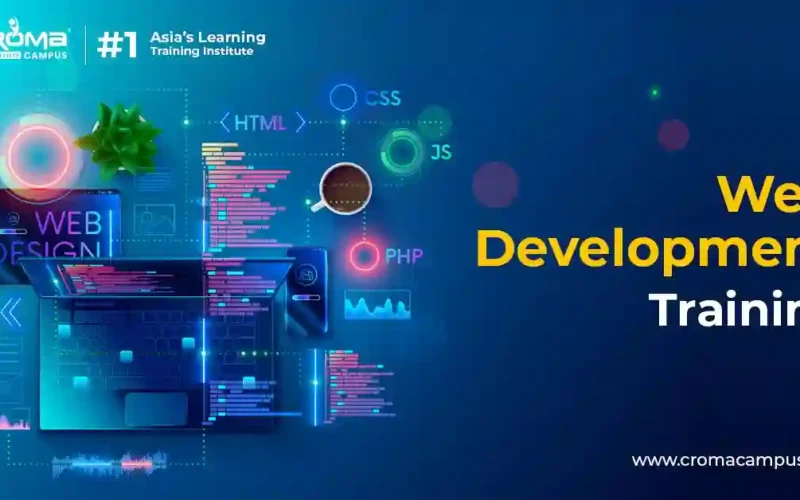The success of any web development project hinges on the proficiency of the individuals behind the code. When it comes to hiring web developers, evaluating technical skills is a critical aspect of the recruitment process. In an ever-evolving tech landscape, the ability to assess a candidate’s technical prowess accurately is paramount. This comprehensive guide explores the key considerations and best practices for effectively evaluating technical skills when hiring web developers.
1. Define Job-Specific Technical Requirements:
Before diving into the evaluation process, it’s essential to define the specific technical requirements of the job. Different web development roles may require expertise in diverse technologies, languages, and frameworks. Clearly outline the technical skills and knowledge needed for success in the role, taking into account both front-end and back-end requirements.
2. Create Realistic Technical Assessments:
Crafting realistic technical assessments is crucial for accurately gauging a candidate’s abilities. Develop assessments that mirror the actual challenges and tasks they will encounter on the job. Consider incorporating coding exercises, problem-solving scenarios, and practical challenges that align with the day-to-day responsibilities of the role.
3. Assess Coding Proficiency:
Coding proficiency is at the core of a web developer’s skill set. When evaluating coding skills, consider the following:
- Algorithmic Problem-Solving: Present candidates with algorithmic problems to assess their problem-solving abilities. This helps evaluate their logical thinking and coding efficiency.
- Coding Exercises: Administer coding exercises that require candidates to write code snippets or solve practical challenges. Evaluate the cleanliness, structure, and effectiveness of their code.
- Live Coding Interviews: Conduct live coding interviews where candidates solve problems in real-time. This provides insights into their coding approach, ability to think on their feet, and handle pressure.
4. Evaluate Framework and Language Proficiency:
Depending on the nature of your web development projects, candidates may need expertise in specific frameworks and programming languages. Evaluate their proficiency in:
- Front-End Frameworks: Assess familiarity with front-end frameworks such as React.js, Angular, or Vue.js. Look for experience in building responsive and interactive user interfaces.
- Back-End Languages: Evaluate proficiency in back-end languages like Node.js, Python, Ruby, or PHP. Assess their ability to develop server-side logic, manage databases, and implement APIs.
- Database Management: Assess knowledge of database systems like MySQL, MongoDB, or PostgreSQL. Evaluate candidates on their ability to design and optimize database structures.
5. Problem-Solving and Debugging Skills:
Web development often involves overcoming challenges and debugging code efficiently. Assess a candidate’s problem-solving and debugging skills through:
- Scenario-Based Questions: Present real-world scenarios or past challenges faced in web development projects. Evaluate their approach to problem-solving and decision-making.
- Code Review Exercises: Provide candidates with code snippets or projects and ask them to identify and fix bugs. This assesses their ability to understand existing codebases and troubleshoot issues.
6. Assess Knowledge of Web Development Tools:
Web developers often utilize a variety of tools and technologies to streamline their workflows. Assess a candidate’s knowledge of relevant tools, including:
- Version Control Systems: Evaluate proficiency in version control systems such as Git. This is essential for collaborative development and codebase management.
- Integrated Development Environments (IDEs): Assess familiarity with popular IDEs like Visual Studio Code, Atom, or Sublime Text.
- Build Tools and Task Runners: Evaluate knowledge of build tools like Webpack or task runners like Gulp. This showcases their ability to optimize and automate development processes.
7. Evaluate Responsive Design and Cross-Browser Compatibility:
In the era of diverse devices and browsers, a web developer’s ability to create responsive designs and ensure cross-browser compatibility is crucial. Assess:
- Responsive Design Techniques: Evaluate a candidate’s approach to responsive design, ensuring that websites or applications adapt seamlessly to different screen sizes and devices.
- Cross-Browser Testing: Assess their understanding of cross-browser compatibility and their ability to identify and resolve issues that may arise across various browsers.
8. Assess Knowledge of Security Best Practices:
Security is a paramount concern in web development. Evaluate a candidate’s awareness of security best practices, including:
- Data Encryption: Assess knowledge of data encryption techniques to secure sensitive information transmitted over networks.
- Code Vulnerabilities: Evaluate understanding of common code vulnerabilities and best practices for preventing security threats.
- Authentication and Authorization: Assess proficiency in implementing secure user authentication and authorization mechanisms.
9. Soft Skills and Collaboration Abilities:
While technical skills are crucial, soft skills and collaboration abilities are equally important in a team-oriented environment. Evaluate:
- Communication Skills: Assess their ability to communicate technical concepts clearly to both technical and non-technical stakeholders.
- Teamwork and Collaboration: Evaluate experiences where candidates have worked collaboratively on projects, showcasing their ability to contribute effectively to a team.
- Adaptability: Assess their ability to adapt to evolving technologies and methodologies, a crucial quality in the rapidly changing field of web development.
10. Continuous Learning and Growth Mindset:
Web development is a field that constantly evolves, requiring professionals to stay updated on emerging technologies. Assess a candidate’s commitment to continuous learning through:
- Questions on Ongoing Learning: Inquire about their approach to staying informed about industry trends, attending conferences, or participating in online courses.
- Portfolio Updates: Review their portfolio for evidence of recent projects or technologies, showcasing a commitment to staying current in the field.
Conclusion:
Evaluating technical skills is a nuanced process that requires a thorough understanding of the specific requirements of the web development role. By creating realistic assessments, assessing coding proficiency, and evaluating a candidate’s knowledge of frameworks, languages, and tools, organizations can make informed decisions in building a robust web development team. Combining technical evaluations with an assessment of soft skills and a growth mindset ensures a holistic approach to hiring web developers who not only possess the required technical acumen but also contribute positively to the overall success of web development projects.











